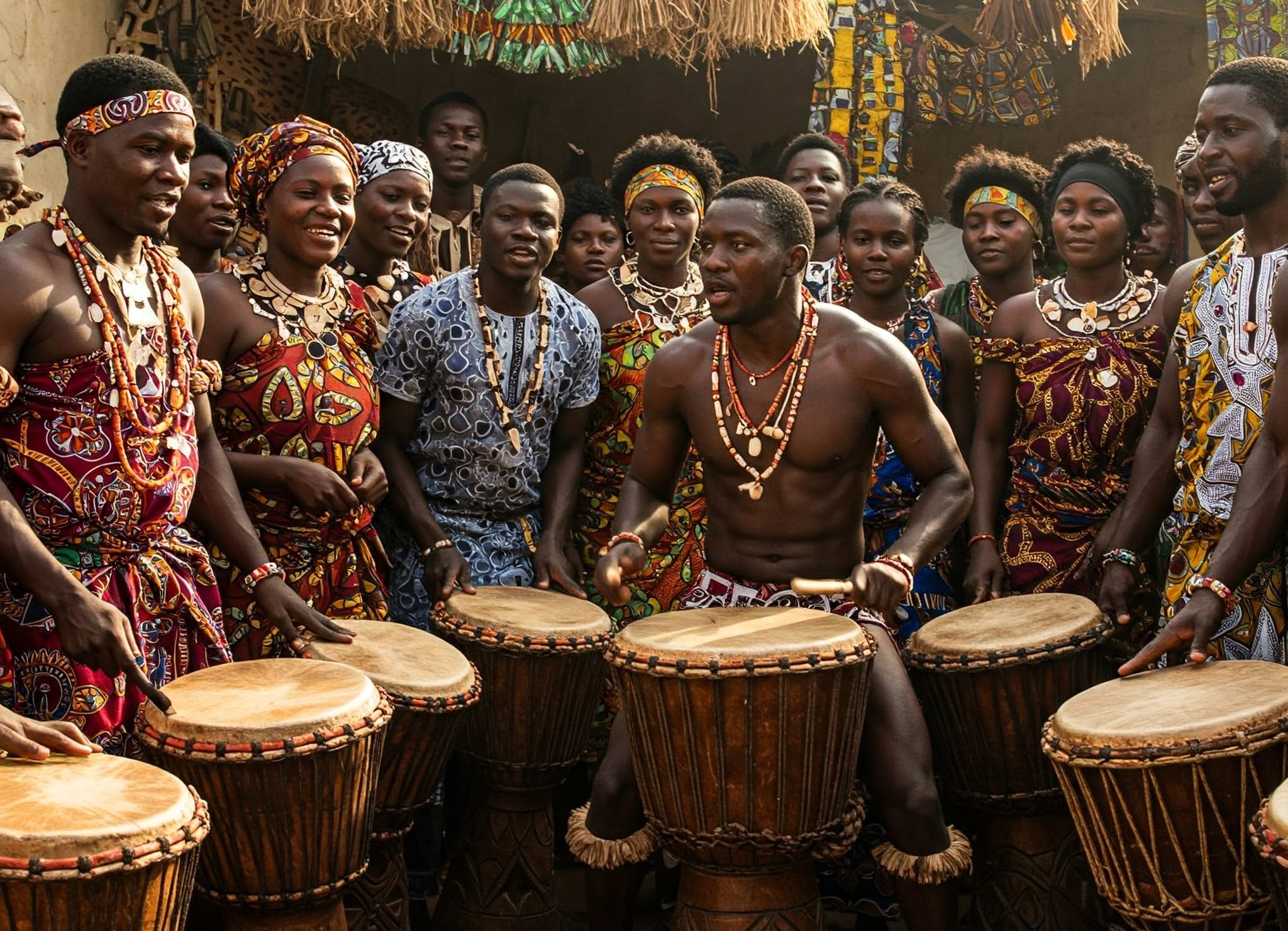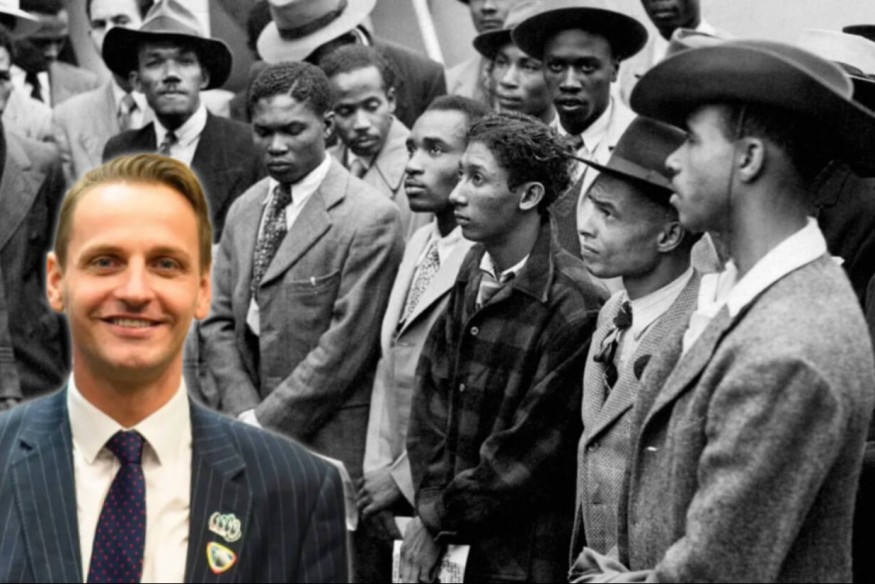
BY ESHERU KWEKU
Throughout the history of the British Empire, colonial authorities systematically suppressed indigenous cultures, traditions and customs in an attempt to impose British values, language, and governance. This suppression took many forms, from banning traditional practices to criminalising native languages and religious beliefs. Ironically, those in Britain today who complain about immigrants preserving elements of their heritage fail to acknowledge the deep historical reality: the British Empire itself forcefully imposed its own culture on the nations it colonised, often violently erasing local traditions.
Banning the Drum: The Silencing of Communication and Identity
One of the most infamous cultural bans enacted by British colonial powers was the prohibition of the drum among enslaved Africans and colonised peoples. The drum was not merely a musical instrument but a vital communication tool. In parts West Africa, it was used to send messages over long distances, coordinate resistance and maintain social cohesion. When Africans were kidnapped and enslaved, they carried their musical traditions with them to the Caribbean, the Americas and other British colonies. Fearing that drumming facilitated covert communication and rebellion, colonial authorities banned it in places like Jamaica, Barbados, and Trinidad. This suppression, however, led to the development of new forms of resistance, such as the creation of steelpan (steel drum) music in Trinidad and other percussive traditions that evolved under colonial rule.
Criminalising Indigenous Spiritual and Religious Practices
Across Africa, India, and the Pacific, British colonialists actively sought to eradicate indigenous religions, deeming them "barbaric or "pagan. Missionary efforts went hand in hand with colonial rule, forcibly converting people to Christianity and banning traditional rituals.
-
India: The British outlawed the practice of Sati (where a widow was expected to self-immolate on her husband's funeral pyre), presenting it as a moral reform. While the abolition of Sati was arguably a positive change, it also served as an excuse to interfere deeply in Indian religious and social structures, paving the way for further control.
-
Africa: In many parts of Africa, indigenous spiritual practices, including Ifá divination, vodun (voodoo), and ancestor worship, were suppressed or criminalised. Christian missionaries destroyed sacred sites and labeled traditional healers as witch doctors.
-
Australia and New Zealand: Indigenous Australian and Māori spiritual practices were actively discouraged, with indigenous children being forcibly removed from their families and placed in Christian boarding schools where they were forbidden from speaking their native languages or practicing their traditions.
Banning Native Languages and Enforcing English
A core tactic of British cultural suppression was the forced adoption of the English language. The goal was to erase local identities and ensure that colonised subjects could only communicate within the framework of British governance.
-
Ireland: The British actively suppressed the Irish language (Gaeilge), particularly after the 19th-century Potato Famine, when English became the dominant language due to British educational policies.
-
India: English became the official language of governance and education under British rule, marginalising local languages like Hindi, Bengali, and Tamil. This created a class of English-speaking elites who could serve as intermediaries for British interests.
-
Africa: In many African colonies, indigenous languages were sidelined, and English was imposed as the language of administration and education. Today, many African nations continue to struggle with the linguistic legacy of colonialism.
Suppressing Clothing and Cultural Expressions
The British also sought to impose European dress codes on colonised peoples, viewing traditional attire as primitive or inappropriate.
-
India: The British discouraged the wearing of traditional Indian garments like the dhoti and saree, especially in formal settings. British officials often required Indian civil servants to adopt European-style suits.
-
Africa: Colonial authorities disapproved of indigenous clothing such as Maasai shukas or West African kente cloth, sometimes enforcing dress codes that mandated Western-style attire.
-
The Pacific Islands: In Hawaii and other Pacific nations, missionaries and colonial authorities pressured native populations to abandon their traditional clothing in favor of modest European dress.
Destroying Local Economic Systems and Food Cultures
British colonial rule often dismantled traditional economic systems, replacing them with cash-crop economies that benefited the Empire.
-
India: The British destroyed India's thriving textile industry, forcing Indian farmers to grow cash crops like cotton and indigo for export rather than food for local consumption. This contributed to widespread famine, such as the Bengal Famine of 1943.
-
Africa: In many African colonies, traditional agricultural practices were disrupted as the British introduced plantation economies reliant on cocoa, rubber, and tea production, often at the expense of food security.
Hypocrisy in Modern-Day Cultural Complaints
Today, some British citizens complain that immigrants from former colonies maintain aspects of their own cultures while living in Britain. However, history shows that Britain spent centuries forcibly imposing its own culture on millions of people across the globe. Colonised nations were made to learn English, adopt British governance systems, practice Christianity, and abandon their cultural traditions often under threat of punishment or death.
The expectation that immigrants should fully assimilate into British culture ignores the fact that cultural exchange has always been a two-way process. The foods, languages, and traditions brought to Britain by people from former colonies enrich the country, just as British culture left an indelible mark often a painful one on the places it colonised.
Conclusion
The British Empire did not simply rule over people it sought to reshape their identities, erase their histories and suppress their cultural expressions. From banning drums and religious practices to criminalising languages and enforcing British dress codes, colonial rule systematically sought to erase indigenous ways of life. Today, as Britain grapples with the realities of its colonial past, it is important to recognise that cultural preservation is not an act of defiance but a right. Those who complain about cultural diversity in Britain should remember that for centuries, Britain denied that very right to millions around the world.






